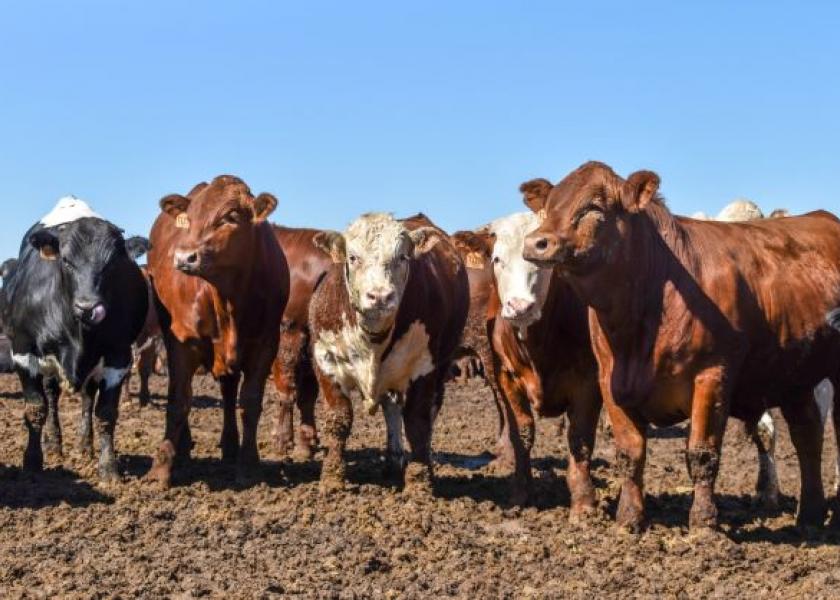Understanding Cattle Stress: Oklahoma State University Researchers Focus On Genetic Predisposition

Using cutting-edge artificial intelligence and sensor technologies, Oklahoma State University researchers have embarked on a groundbreaking $1 million, four-year, multi-disciplinary project aimed at studying stress in cattle.
“I had a theory that some of these animals may be genetically predisposed to becoming dark cutters or having heart failure or being less efficient due to physical stressors and animal-environment interactions,” said Janeen Salak-Johnson, an associate professor of animal and food sciences, in a recent release.
Specifically, the project seeks to explore the genetic predisposition of cattle to conditions like dark cutter meat and heart failure, which have been linked to stressors experienced throughout the cattle lifespan.
Dark cutter meat lacks the vibrant red color typically found in retail stores, explains the release, which leads to the inability for the meat to be sold in retail stores and discounts by other food services. The scientists believe the condition is partially caused by the accumulative stressors livestock animals experience during the weaning phase, notes the release.
Funded by the U.S. Department of Agriculture's Interdisciplinary Engagement in Animal Systems program, the research will focus on moderate-growth and high-growth cattle, analyzing their responses to stress using sensor technology. Parameters like heart rate, body temperature, steps and respiration rate will be monitored to understand the cumulative effects of stress throughout their lives.
“These conditions don’t happen because animals experience stress one time. It’s a cumulative effect,” Salak-Johnson said in the release. “This project will allow us to characterize the physiological responses of these animals based on their genetics for growth. We hope to unravel where in their lifespan they face the most critical stressors and if the level of stress they experience is influenced by their genetic capacity for growth.”
Traditionally, cattle selection has prioritized traits like growth rate and carcass quality. However, concerns have risen regarding increased death rates during the late-finishing period due to aggressive growth selection, David Lalman, professor of animal and food sciences, explains in the release. This is believed to be linked to compromised immune systems in rapidly growing cattle.
Preliminary studies conducted by Salak-Johnson's team have already revealed the influence of genetics on stress responses, including those during the weaning phase. Collaborating with veterinary consultants and large feedlot operations, researchers will examine tissue samples from cattle affected by sudden death syndrome. By analyzing protein and metabolite changes, they aim to predict the underlying causes of this condition.
To facilitate this extensive research, a biomathematics tool will be employed for in-depth analysis of tissue samples. Additionally, artificial intelligence technology will assist in assessing the vast amount of data collected, aiding in the development of a predictive tool to identify stress predisposition in animals.
The research team, which includes experts from various fields such as meat science, sociology, computer science and biosystems engineering, plans to interview producers about their willingness to adopt the predictive technology.
“I really think there’s an opportunity for this team to have a significant impact on this area of research because we are going to look at a more holistic and more complete characterization of these animals,” Salak-Johnson said in the release. “This research could lead to producers having the ability to implement strategies at certain times of the year or when they see certain behavioral changes in livestock.”
Read More:







